I feel that this topic has by far been the most important one I have addressed in my writings to date. So in the spirit of black history month, I want to revisit it. I believe it is critical that we really know our history so we don’t repeat our mistakes. Holding one person above another is not something we should ever participate in and is the exact opposite of the commandment to love one another. While reviewing this post, I decided to include some additional information that wasn’t in the original publication. The additions are marked in blue as “revisions”.
In Part 4 of this series on revelation, we will closely examine the relationship between blacks and the LDS church. If you have not read Part 1 of this series, I highly recommend that you do so before reading this post (you can read it here).
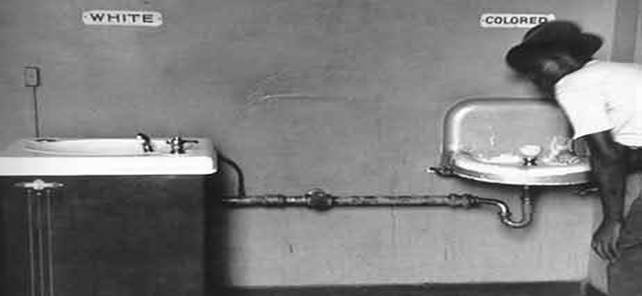
If you are not familiar with the Mormon faith, church members of African descent were not allowed to hold the priesthood or participate in temple ceremonies until Spencer W. Kimball declared in 1978 that this should not be. So when were they actually banned and why? These questions were brought up in the public light recently when a BYU professor, Randy Bott, was interviewed on the subject in the Washington Post. His commentary was incorrect and offensive, which led the church to publish a response (read it here). The church stated: “For a time in the Church there was a restriction on the priesthood for male members of African descent. It is not known precisely why, how, or when this restriction began in the Church but what is clear is that it ended decades ago.” I challenge that this is also an incorrect statement.
Before 1978, there were many teachings floating around that tried to explain the ban. Some were backed by General Authorities and even published in books (i.e. Mormon Doctrine written by Bruce R. McConkie). Included in these teachings were:
- The curse of Cain: “This belief was commonly held by many Protestant denominations in early American history. It was often used as a
justification for slavery and reached its peak about the time of the Civil War. Many people who joined the LDS Church brought this teaching into the Church with them. Most Protestants later changed their talking points on this to say that the children of Cain were wiped out during Noah’s flood, so the cursing came through the flood by Ham. Therefore, the more modern phrasing of this belief is the so-called “curse of Ham.” But the curse of Cain continued to be taught in the then geographically-isolated LDS Church.” (fairblog.org – Scott Gordon) Here are some quotes to show the sentiment of the time:
Every hope of the existence of church and state, and of civilization itself, hangs upon our arduous effort to defeat the doctrine of Negro suffrage – Robert Dabney, a prominent 19th century Southern Presbyterian pastor
… the right of holding slaves is clearly established in the Holy Scriptures, both by precept and example – Richard Furman, President, South Carolina Baptist Convention
- They were fence sitters or less faithful when presented with Satan’s plan and Jesus’ plan in the pre-existence: “The Negroes are not equal with other races where the receipt of certain spiritual blessings are concerned, …but this inequality is not of man’s origin. It is the Lord’s doing, is based on his eternal laws of justice, and grows out of the lack of spiritual valiance of those concerned in their First Estate [the pre-existence].” ( Mormon Doctrine, p. 527 – 528, 1966 edition)
- The Levites were able to hold the priesthood while others were not: This shows how God restricts people of certain lineages from receiving the priesthood just like he did with blacks.
All these teachings are folklore and need to stop. I don’t even want to get into the mental gymnastics that it would take to even explain how the first example could even be reasonable. The curse of Cain or Ham goes directly against what Joseph taught: “We believe that men will be punished for their own sins, and not for Adam’s transgression” (Articles of Faith #2). This basically says that no matter where you come from, or who your father is, you are responsible for yourself and your own actions. The second teaching safely allows one to judge another as less worthy and less valiant simply by his or her skin color and therefore puts a white person above a black person. And as for the third teaching, I would say that in modern times this explanation just doesn’t work. In ancient times, only one group was allowed to hold the priesthood, but in modern times only one group is not allowed to hold the priesthood while all other groups can. Not really a comparable argument. Also it should be noted that Joseph Smith gave the priesthood to Elijah Ables, a black man. Since Joseph did that this throws out the Levite argument. If you hear anyone teach any of these three teachings, you need to correct them kindly.
An interesting note about the notion that Ham was the one through whom the “Negro lineage” continued after the flood: “..some Mormon critics have considered it ironic that Joseph Smith, whom Brigham Young called a ‘pure Ephraimite,’ would not have also been cursed as to the priesthood since, according to LDS scholar Hugh Nibley, ‘Joseph [of the Old Testament] married Asenath [an Egyptian], who was the daughter of the high priest of Heliopolis and direct descendant of Ham.’ This would make both Ephraim and Manasseh-from whom the majority of Church members have been told they descend-half Hebrew and half Egyptian, carrying the blood of Ham.” (This Is My Doctrine, pg 390)
It may not be widely known in the Mormon culture, but Joseph Smith, Parley P. Pratt, William Smith, and Orson Hyde did in fact ordain blacks to the priesthood. Joseph also received a revelation on slavery: “it is not right that any man should be in bondage to another”. So when did the ordination of the blacks stop? It stopped with Brigham Young, but the actual first recorded statement on the priesthood ban was by Parley P. Pratt in 1847: “…was a black man with the blood of Ham in him which linege was cursed as regards the priesthood”. (This Is My Doctrine, pg 388) Brigham Young felt the same way stating in 1849 in a private conversation, “The Lord had cursed Cain’s seed with blackness and prohibited them the Priesthood”. (This Is My Doctrine, pg 388)
“Having matured as an ecclesiastical and political leader in a ‘sea of Negrophopia,’ it is surprising that Brigham Young’s first recorded comments on the issue of black church members conveyed a more egalitarian set. In March 1847, a strange musician and prophet named Warner (or William) McCary appeared in Winter Quarters. Born a slave in Mississippi of mixed European and African ancestry, McCary somehow escaped and move to St. Louis, then was baptized in Nauvoo and married a white woman before relocating to Cincinnati and building a congregation around his own prophetic and messianic authority.
‘If there were far away from the Gentiles they would all have to be killed – when they mingle seed it is death to all. If a black man & white woman come to you & demand baptism can you deny them? the law is their seed shall not be amalgamated.’‘Mulattoes are like mules they can’t have children, but if they will be Eunuchs for the Kingdom of Heaven’s sake they may have place in the Temple.’
“Young’s ideas about mixed-races sterility, including the mule analogy, were standard fare among white Americans into the early twentieth century. Still, despite it condemnation of miscegenation, Young’s response to Appleby suggested that person of African descent might receive some of the church’s ritual blessings.
Speaking in regards to blacks and slavery (referencing Cain and Abel), Brigham Young said:
“What is that mark? you will see it on the countenance of every African you ever did see upon the face of the earth, or ever will see. Now I tell you what I know; when the mark was put upon Cain, Abels children was in all probability young; the Lord told Cain that he should not receive the blessings of the preisthood nor his seed, until the last of the posterity of Able had received the preisthood, until the redemtion of the earth. If there never was a prophet, or apostle of Jesus Christ spoke it before, I tell you, this people that are commonly called negroes are the children of old Cain. I know they are, I know that they cannot bear rule in the preisthood, for the curse on them was to remain upon them, until the resedue of the posterity of Michal and his wife receive the blessings, the seed of Cain would have received had they not been cursed; and hold the keys of the preisthood, until the times of the restitution shall come, and the curse be wiped off from the earth, and from michals seed. Then Cain’s seed will be had in rememberance, and the time come when that curse should be wiped off.
“Now then in the kingdom of God on the earth, a man who has has the Affrican blood in him cannot hold one jot nor tittle of preisthood; Why? because they are the true eternal principals the Lord Almighty has ordained, and who can help it, men cannot. the angels cannot, and all the powers of earth and hell cannot take it off, but thus saith the Eternal I am, what I am, I take it off at my pleasure, and not one partical of power can that posterity of Cain have, until the time comes the says he will have it taken away. …What we are trying to do to day is to make the Negro equal with us in all our privilege. My voice shall be against all the day long. I shall not consent for one moment I will will call them a counsel. I say I will not consent for one moment for you to lay a plan to bring a curse upon this people. I shall not be while I am here.” (Speach by Gov. Young in Joint Session of the Legeslature. Feby. 5th 1852 giving his veiws on slavery.)
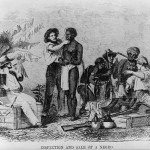 Brigham Young thought slavery was a divine institution. He said: “Ham will continue to be servant of servants, as the Lord decreed, until the curse is removed. Will the present struggle free the slave? No; but they are now wasting away the black race by thousands…. “Treat the slaves kindly and let them live, for Ham must be the servant of servants until the curse is removed. Can you destroy the decrees of the Almighty? You cannot. Yet our Christian brethren think that they are going to overthrow the sentence of the Almighty upon the seed of Ham. They cannot do that, though they may kill them by thousands and tens of thousands.”
Brigham Young thought slavery was a divine institution. He said: “Ham will continue to be servant of servants, as the Lord decreed, until the curse is removed. Will the present struggle free the slave? No; but they are now wasting away the black race by thousands…. “Treat the slaves kindly and let them live, for Ham must be the servant of servants until the curse is removed. Can you destroy the decrees of the Almighty? You cannot. Yet our Christian brethren think that they are going to overthrow the sentence of the Almighty upon the seed of Ham. They cannot do that, though they may kill them by thousands and tens of thousands.”
(Millennial Star, Vol. 25, page 787; also published in Journal of Discourses, Vol. 10, page 250)
In these addresses, one can see the racist background that Brigham Young had through the belief that was commonly held by many Protestant denominations in early American history. Mormons were just as racist as everyone else. “Much of the conventional ‘explanation’ for the priesthood restriction was simply borrowed from the racist heritage of nine-teenth-century Europe and America, especially from the justifications for slavery used in the ante-bellum South”, said Armand Mauss, LDS emeritus professor of sociology at Washington State University. (This Is My Doctrine, pg 389) So in regards to the church’s statement, “It is not known precisely why, how, or when this restriction began in the Church…”, I would argue that we know exactly where it started. I do think Gordon B. Hinkley’s approach to the subject with Mike Wallace in a 60 Minutes interview was much more forthcoming: “Because the leaders of the church at that time interpreted that doctrine that way.” If you want to get specific, you could go on to say that as the leader of the church, Brigham Young simply let his beliefs, his bias, and his racism carry over to Mormonism.
the Church…”, I would argue that we know exactly where it started. I do think Gordon B. Hinkley’s approach to the subject with Mike Wallace in a 60 Minutes interview was much more forthcoming: “Because the leaders of the church at that time interpreted that doctrine that way.” If you want to get specific, you could go on to say that as the leader of the church, Brigham Young simply let his beliefs, his bias, and his racism carry over to Mormonism.
Brigham Young was racist. Did the Book of Mormon help or hinder his racism? Let’s dive into our scriptures:
2 Nephi 5:21: “And he had caused the cursing to come upon them, yea, even a sore cursing, because of their iniquity. For behold, they had hardened
their hearts against him, that they had become like unto a flint; wherefore, as they were white, and exceedingly fair and delightsome, that they might not be enticing unto my people, the Lord God did cause a skin of blackness to come upon them.”
2 Nephi 30:6: “And then shall they rejoice; for they shall know that it is a blessing unto them from the hand of God; and their scales of darkness shall begin to fall from their eyes; and many generations shall not pass away amont them, save they shall be a white and a delightsome people” (white was changed to pure in 1840, then changed back to white, and changed back to pure again in 1981)
Alma 3:6: “And the skins of the Lamanites were dark, according to the mark which was set upon their fathers, which was a curse upon them because of their transgression and their rebellion against their brethren, who consisted of Nephi, Jacob and Joseph, and Sam, who were just and holy men.”
3 Nephi 2:15: “And their curse was taken from them, and their skin became white like unto the Nephites.” (white was changed to pure in 1981)
Jacob 3:5,8-9: 5. “Behold, the Lamanites your brethren, whom ye hate because of their filthiness and the cursing which hath come upon their skins, are more righteous than you; for they have not forgotten the commandment of the Lord, which was given unto our father—that they should have save it were one wife, and concubines they should have none, and there should not be whoredoms committed among them.”
8. “O my brethren, I fear that unless ye shall repent of your sins that their skins will be whiter than yours, when ye shall be brought with them before the throne of God.”
9. “Wherefore, a commandment I give unto you, which is the word of God, that ye revile no more against them because of the darkness of their skins; neither shall ye revile against them because of their filthiness; but ye shall remember your own filthiness, and remember that their filthiness came because of their fathers.”
Moses 7:22: “And Enoch also beheld the residue of the people which were the sons of Adam; and they were a mixture of all the seed of Adam save it was the seed of Cain, for the seed of Cain were black, and had not place among them.”
Abraham 1:21-24, 27: “Now this king of Egypt was a descendant from the loins of Ham, and was a partaker of the blood of the Canaanites by birth.
22. “From this descent sprang all the Egyptians, and thus the blood of the Canaanites was preserved in the land.”
23. “The land of Egypt being first discovered by a woman, who was the daughter of Ham, and the daughter of Egyptus, which in the Chaldean signifies Egypt, which signifies that which is forbidden;”
24. “When this woman discovered the land it was under water, who afterward settled her sons in it; and thus, from Ham, sprang that race which preserved the curse in the land.”
27. “Now, Pharaoh being of that lineage by which he could not have the right of Priesthood, notwithstanding the Pharaohs would fain claim it from Noah, through Ham, therefore my father was led away by their idolatry;”
What’s the takeaway? Dark equals bad and cursed; white equals good and pure. To a racist, these scriptures would certainly be interpreted literally. So if you don’t hold racial views, how do you deal with these scriptures?
The next logical question to ask is why it took so long to change the policy of blacks not being allowed to hold the priesthood. I think that frankly it was a non-issue to the early Mormons; questions are asked only when an issue is raised. Geographically, the early Mormons were mostly in the west where there wasn’t a huge population of blacks, even less in Utah. The leadership was completely white, mostly from Utah/Idaho (not particularly well traveled). At the time, most members did not even know about the ban, including David O. McKay. It was only when he was made an apostle that he found out about the ban.
“By the turn of the twentieth century, when David O. McKay became a apostle, few Mormons were even aware of the policy. Indeed, McKay himself did not confront it for another fifteen years. In 1957, he recalled:
Following is a breakdown of the steps that led to the lifting of the ban in 1978 (not every step is included):
1921 – Apostle David O. McKay wrote to President Grant pleading for an exception to the ban.
1940 – Africans heard about the church and asked for material and copies of The Book of Mormon. They formed independent congregations.
1941 – Brazil declared war on Germany and Italy. Foreigners, including missionaries serving in Brazil, were not allowed to associate with German or Italian Brazilians. This left only Luzo-Brazilians – those of Portuguese descent often mixed with Indian and black ancestry – for the missionaries to teach. Tests were employed to determine if converts had Negro blood or not: curly hair, dark skin, wide nose. If they didn’t bear these traits, they were given the priesthood. Essentially, as long as converts looked white enough, they were given the priesthood.
August 7th, 1949 – The First Presidency, under the direction of George Albert Smith, declared: “The attitude of the Church with reference to Negroes
remains as it has always stood. It is not a matter of the declaration of a policy but of direct commandment from the Lord, on which is founded the doctrine of the Church from the days of its organization, to the effect that Negroes may become members of the Church but that they are not entitled to the priesthood at the present time. The prophets of the Lord have made several statements as to the operation of the principle. President Brigham Young said: “Why are so many of the inhabitants of the earth cursed with a skin of blackness? It comes in consequence of their fathers rejecting the power of the holy priesthood, and the law of God. They will go down to death. And when all the rest of the children have received their blessings in the holy priesthood, then that curse will be removed from the seed of Cain, and they will then come up and possess the priesthood, and receive all the blessings which we now are entitled to.”
Mid-1950s – President McKay softened the ban by stating that members no longer needed to prove their lineage was not African. The church instead allowed dark-skinned members to hold the priesthood unless it was proven otherwise they were of African descent. President McKay told Elder Marion D. Hanks that “he had pleaded and pleaded with the Lord, but had not had the answer he sought.” (Kimball, Lengthen Your Stride, chapter 20 working draft, 13)
1963 – Sterling McMurrin, Mormon theologian, wrote the statement on civil rights that Hugh B. Brown read at general conference. McMurrin candidly discussed his beliefs with McKay, including his rejection of “the common Mormon doctrine that the Negroes are under a divine curse.” This is McKay’s response:
“There is not now, and there never has been a doctrine in the church that the Negroes are under a divine curse…We believe…that we have scriptural precedent for withholding the priesthood from the Negro. It is a practice, not a doctrine, and the practice will some day be changed. And that’s all there is to it.'” (pg 79; Sterling McMurrin, affidavit, March 6, 1979)
Mid-1960s – There were thousands of independent Mormon congregations in Ghana and Nigeria with their own organizations under no direction from Utah. The church then sent out missionaries to act as leaders and to do all priesthood ordinations. Negative press in Nigeria and Ghana about the church halted the rotation of the missionaries.
1965 – TIME published an article on the black Mormons in Nigeria and the priesthood ban. This article spawned many others which resulted in bans on BYU. Boycotts and protests of BYU were put into play by UTEP and the University of Wyoming. A big spotlight was put on the priesthood ban by the Stanford president in 1969 when he suspended all athletic relations with BYU. San Jose State University also refused along with Stanford.
1969 – Hugh B. Brown proposed to the 12 apostles to lift the ban. The talks favored a lifting of the ban. Harold B. Lee, who was in the first presidency, returned from travels and argued that the policy couldn’t be changed without revelation. Lee had the 12 apostles sign a document restating the status quo. The policy went unchanged.
1973 – Dialogue, a Mormon publication, featured an article written by Lester Bush titled Mormonism’s Negro Doctrine: An Historical Overview. This article is said to be a huge influence for President Kimball to get the ball rolling. A grandson to Spencer W. Kimball has said that the prophet read, underlined, and annotated the whole article. While others also appreciated Lester’s contribution, there were those that did not. Boyd K. Packer tried to talk Bush out of having the article published. Some tried to lobby the editors to do the same. After the article was published, Bush stated that he was marginalized by local leaders. He later withdrew from the church completely. (Journal of Mormon History (“Writing ‘Mormonism’s Negro Doctrine: An Historical Overview’ (1973): Context and Reflections,” Vol. 25, (1), 1999)
Revision 2/18/13
Lester Bush’s experience reminded me of a quote from one of my favorite movies – Moneyball:
“I know you’ve taken it in the teeth out there, but the first guy through the wall. It always gets bloody, always. It’s the threat of not just the way of doing business, but in their minds it’s threatening the game. But really what it’s threatening is their livelihoods, it’s threatening their jobs, it’s threatening the way that they do things. And every time that happens, whether it’s the government or a way of doing business or whatever it is, the people are holding the reins, have their hands on the switch. They go bat shit crazy.” (Moneyball, Columbia 2011)
1974 – The NAACP filed a lawsuit against the LDS scout troops because the the LDS church would only allow a deacons quorum president to be the troop leader. The quorum president, of course, would have to hold the priesthood. After the lawsuit, the church reversed its scouting policy. (Mauss, Armand L. (2003). All Abraham’s Children: Changing Mormon Conceptions of Race and Lineage. University of Illinois Press. p. 218.)
troop leader. The quorum president, of course, would have to hold the priesthood. After the lawsuit, the church reversed its scouting policy. (Mauss, Armand L. (2003). All Abraham’s Children: Changing Mormon Conceptions of Race and Lineage. University of Illinois Press. p. 218.)
1975 – São Paulo Brazil temple was announced. The leadership faced a huge issue – how to determine who was allowed in the temple. This was a major issue due to the mixing of races in Brazil. (Mark L. Grover, “The Mormon Priesthood Revelation and the São Paulo Brazil Temple”,Dialogue: A Journal of Mormon Thought 23:39–53 (Spring 1990)
1976 – Spencer W. Kimball stated “his concern for giving the priesthood to all men, and said that he had been praying about it for fifteen years without an answer…but I am going to keep praying about it.”(Kimball, Lengthen Your Stride, working draft chapter 21, page 7)
1976 & 1977 – Douglas A. Wallace and Byron Merchant were excommunicated after criticizing the church’s stance on the ban (Salt Lake Tribune
April 1976, April 1978). Grant Syphers was refused a temple recommend by his stake president for not supporting the ban. He was told by his stake president: “Anyone who could not accept the Church’s stand on Negroes … could not go to the temple”. (Dialogue: A Journal of Mormon Thought, Winter 1967, p. 6)
June 8th, 1978 – The First Presidency released an official statement to the press lifting the priesthood and temple ban. It was later read in General Conference in September 1978. You can read it here. It is known as the ” Official Declaration – 2″.
1978 – “We spoke with limited understanding and without the light and knowledge that has now come into the world.” – Bruce R. McConkie
October 30, 1978 – São Paulo Brazil temple was dedicated and opened.
It appears that it was only when the church was repeatedly confronted with the issue – I think the strongest push was the temple and leadership issue in Brazil – that questions were asked and changes were made.
LeGrand Richards, Mormon apostle, was interviewed by Wesley Walters and Chris Vlachos shortly after the ban was lifted. Here is an excerpt from the inteview:
Walters: On this revelation, of the priesthood to the Negro, I’ve heard all kinds of stories: I’ve heard that Christ appeared to the apostles; I’ve heard that Joseph Smith appeared; and then I heard another story that Spencer Kimball had had a concern about this for some time, and simply shared it with the apostles, and they decided that this was the right time to move in that direction. Are any of those stories true, or are they all?
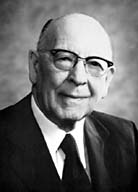
LeGrand Richards
Richards: Well, the last one is pretty true, and I might tell you what provoked it in a way. Down in Brazil, there is so much Negro blood in the population there that it is hard to get leaders that don’t have negro blood in them. We just built a temple down there. It’s going to be dedicated in October. All those people with Negro blood in them have been raising money to build that temple. If we don’t change, then they can’t even use it. Well, Brother Kimball worried about it, and he prayed a lot about it. He asked each one of us of the twelve if we would pray–and we did–that the Lord would give him the inspiration to know what the will of the Lord was. Then he invited each one of us in his office–individually, because you know when you are in a group, you can’t always express everything that’s in your heart. You’re part of the group, see–so he interviewed each one of us, personally to see how we felt about it, and he asked us to pray about it. Then he asked each one of us to hand in all the references we had, for, or against that proposal. See, he was thinking favorably toward giving the colored people the priesthood. Then we had a meeting where we meet every week in the temple, and we discussed it as a group circle. and then held another prayer circle after the close of that meeting, and he (President Kimball) lead in the prayer; praying that the Lord would give us the inspiration that we needed to do the thing that would be pleasing to Him and for the blessing of His children.
And then the next Thursday–we meet every Thursday–the presidency came with this little document written out to make the announcement–to see how we’d feel about it–and present it in written form. Well, some of the members of the Twelve suggested a few changes in the announcement, and then in our meeting there we all voted in favor of it–the Twelve and the first Presidency. One member of the Twelve, Mark Peterson, was down in South America, but Brother Benson, our president, had arranged to know where he could be reached by phone, and right while we were in that meeting in the temple, Brother Kimball talked with Brother Peterson, and read him the article, and he (Peterson) approved of it.
Walters: There wasn’t a special document as a “revelation”, that he had wrote down?
Richards: We discussed it in our meeting. What else should we say besides that announcement? And we decided that that was sufficient; that no more needed to be said.
Richards seems to be in agreement with Walters’ assessment that the “revelation” came to be simply via a concern voiced by Spencer Kimball. This makes it sound not so much like a revelation, but maybe just like an active step toward lifting the ban instigated by Spencer Kimball that garnered different results than previous attempts.

Mark E. Peterson
I personally feel that there is no question about the irreparable hurt caused by the ban. This is a prime example of when human bias can be extremely hurtful. As we look back at some of the rhetoric spoken by General Authorities, we can further see why a change took so long. Mark E. Peterson said:
“Is there reason then why the type of birth we receive in this life is not a reflection of our worthiness or lack of it in the pre-existent life?…can we account in any other of way for the birth of some of the children of God in darkest Africa, or in flood-ridden China, or among the starving hordes of India, while some of the rest of us are born here in the United States? We cannot escape the conclusion that because of performance in our pre-existence some of us are born as Chinese, some as Japanese, some as Indians, some as Negroes, some as Americans, some as Latter-day Saints. These are rewards and punishments, fully in harmony with His established policy in dealing with sinners and saints, rewarding all according to their deeds…. Now we are generous with the negro. We are willing that the Negro have the highest kind of education. I would be willing to let every Negro drive a cadillac if they could afford it. I would be willing that they have all the advantages they can get out of life in the world. But let them enjoy these things among themselves, I think the Lord segregated the Negro and who is man to change that segregation? It reminds me of the scripture on marriage, ‘what God hath joined together, let not man put asunder.’ Only here we have the reverse of the thing— what God hath separated, let not men bring together again.” (Convention of Teachers of Religion on the College Level, Brigham Young University, August 27,1954)
I don’t see any sort of love in this comment. The only thing that I take away from this quote is that because my skin is lighter and that I live in the United States of America, I am better than everyone else. Making yourself better than another race presumed from old teachings is very harmful, ugly, and just plain racist. Which is the opposite of what Peter said: “Of a truth I perceive that God is no respecter of persons: But in every nation (i.e., regardless of ethnicity or race) he that feareth him, and worketh righteousness, is accepted with him”. (Acts 10:34,35)
What can we do to overcome the damage? Realistically, I don’t think that the church will ever officially apologize for the ban, and may not even address it in its factual entirety; so the burden rests on the members of the church to make sure the story is taught correctly. I think as members we can do this because we truly feel terrible for what happened. We should avoid repeating the mistake by making sure we are not discriminating against any group based on our traditions or policies. By not telling this story correctly or sweeping it under the rug is a disgrace to those who fought and sacrificed for this change. Above all this, the number one answer to the question is as simple and relevant as it has always been: “A new commandment I give unto you, That ye love one another; as I have loved you, that ye also love one another.” (John 13:34)


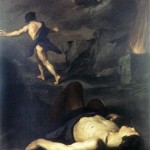
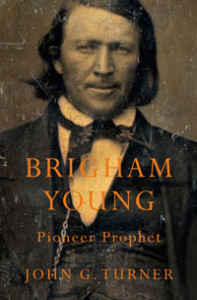
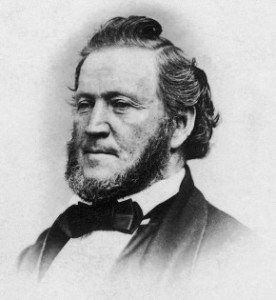
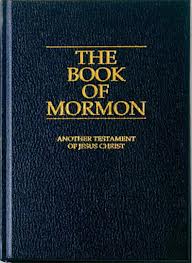
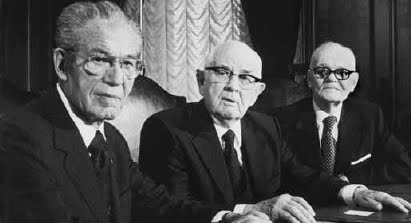
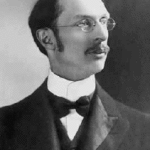
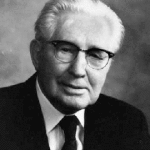





This is a terrific post. Thank you for addressing this part of LDS history. I remember exactly where I was when the 1978 announcement came over the radio. I wept.
Now if we can just realize the same discrimination exists against women…..
Thank you Jenny for you comment. I just added some more content this morning.
Just as this was written with an eye toward Black History Month, and you have suggested that in dealing with our history, hopefully we can prevent this kind of thing from happening in the future. I agree with JennyP and the issues in discrimination of women. But let me remind… June is also Gay Pride Month.
Just an FYI. Back in January we started asking people to write posts for us about homosexuality within the context of Mormonism. The plan was to run a seven-week series on the issue. We had seven people commit to writing essays. To date, only three essays have come in. I don’t think the series will be ready to post this month. Sorry.
“so the burden rests on the members of the church to make sure the story is taught correctly.”
Great thought Paul. Even if the institutional church is not forthright about the cultural causes of the ban, we as members can be.
Exactly! Thanks for the comment RT!
I love the money ball quote.
Our first blog cuss! haha, but it totally fit!
I think my favorite bit of this event is how Peterson was conveniently out of town during the decision making process. I would have loved to have heard the conversation between Benson & Peterson. My feeling, based on Peterson’s previous comments, is that if he had been in town, the decision would have been further delayed.
Yes… I imagine the conversation went like this: “So ALL of us think we should do this. ALL of us. How do you feel about that?” “Well since all of you are on the same page… let’s do it” – throw in some prayer in the mix too.
In Edward Kimball’s “Lengthen Your Stride: Working Draft” it appears even more implicit that it was a political move on President Kimball’s part to have Mark Peterson out of town. One weird thing is, Edward Kimball feels that it was Mark Peterson that pointed President Kimball towards Lester Bush’s 1973 article, which we later find out greatly influenced Spencer’s understanding of the development of the ban.
Some nice additions Pablo. I really enjoyed this post. On a similar vein, I read this this morning and really enjoyed it. As always with these articles, try to avoid the comments section…
http://www.al.com/living/index.ssf/2013/02/first_black_mormon_stake_presi.html
Thanks Stu! I’ll check out that article.
Read this post again this morning. It brings back difficult times…..when colleges boycotted BYU, it would make the news. I was in middle and high school in those days. Kids would ask me why we were racists. I was taught to declare that we Mormons were not racist, and in fact, black men were blessed.
1) they didn’t need the priesthood to go to the CK.
2) they didn’t have to do all the things my dad and brothers had to do, but got to heaven anyway
3) we love them, but God must by revelation, give the prophet the okay to ordain them
4) we love them, so we are not bigots or racists
5) the church is not bound by the civil rights movement, which is a social movement “of the world”
6) they end up with the same blessings without all the responsibilities
7) we love them, but must obey God’s will
It never felt right giving these explanations. My friends rolled their eyes and told me to get my head out of the darkened sand. I felt embarrassed, and then felt guilty for feeling embarrassed. I remember thinking….if the church is true, why don’t we lead the world by example and truth? Why are we always behind the rest of society rather than lighting the way?
Still wondering those same things decades later.
Very interesting Jenny. Thanks for your insightful input. And yes we should be leading the way.
By the way, were those two reporters ever re-baptized, do you know? Many people today speak against church policies, but are not excommunicated. I feel badly for them, and hope they were able to return.
I don’t think Douglas was re-baptized… I think he went the other way and wrote a book all about it. Here is the amazon link.
Amen, Jenny.
Excellent piece, Paul. Mostly, I’m grateful that you know so much and are sharing it. I’ll add a bit more when I have time.
Once again a well thought-out post.
Very nicely done, Paul. I read Part 1 in this series and completely agree: We each speak a unique language and God speaks to us as individuals in the language we understand.
I also feel that prophecy and ongoing revelation is not the job of the leadership of the church alone. It is very much a collaborative effort involving the entire “body” of the church from work.a.day saints to apostles. . . We all have part in opening our hearts and minds to facilitate ongoing revelation (and restoration) of greater light and truth.
I Corinthians: 12: 21 And the eye cannot say unto the hand, I have no need of thee: nor again the head to the feet, I have no need of you.
I really appreciate candid, factual, discussions on topics like this one. Though, every time I read or hear discussed the facts that can be clearly proven by historical records it really gets my hackles up about the way Church Headquarters chooses to address (usually by not addressing) the topic. At the very least there should be more institutional acknowledgement of what clearly transpired when there is so much historical record. On that note, your concluding admonition is SPOT ON that we members have not only the opportunity but the obligation to be forthright and candid about the real history.
The inclusion of the Mark E. Peterson quote about the circumstances we are born into being a reward of pre-earthly deeds and JennyP’s comments about the explanations that she was taught brought up some memories from my youth. I was a child in the 80’s and teen in the 90’s, and even years after the ban had ended I remember receiving the message from youth leaders along the lines of Mark Peterson’s comment: that all on earth must have been part of the 2/3 of the host of heaven that sided with Christ but that the specific circumstance we were born into reveal just how valiant we must have been – with those born into Mormon families being the most blessed and thus the most valiant! I also remember folk doctrines of deals that must have been struck in the pre-earth existence and then missionaries who baptized individuals who they felt they had promised to find and bring them the gospel as a result of their willingness/consignment to be born in a 3rd world country to a non-Mormon family.
Fantastic post! I’m sure Peterson’s logic followed with McConkie’s regarding blacks. See http://www.wheatandtares.org/2013/02/25/mormon-doctrine-blacks/
Excellent and very thorough article. I was shocked by how much of this sentiment still exists especially among my parent’s generation (born in the late 50s). When I moved back to TX someone teaching a RS lesson stated that mixed races were not allowed to be sealed in the temple because of the ‘curse of Cain’. We definitely have to advocate the truth, including the ugly parts of our past, if we want to progress. I love Pres Kimball all the more for his struggle with this issue. I remember reading some of his opinions on the role of women, family issues and birth control in an ethics class at BYU. It’s amazing how things can change in 50 years! It certainly was a very different time culturally and I think it’s so important to point out these biases were cultural as opposed to fundamentally doctrinal. I’m glad I live in a time when we can have frank conversations and not have to fear being ex’ed.
Times are a changin!
I appreciated the article. A few things I disagree on, though:
1. I don’t think people use the Levite-only example as rational, but instead to make the point that at times the priesthood was with some people, and at other times other people. One could even say that in a sense today it’s more restrictive: it’s not patriarchally inherited, so to speak, but based on worthiness. I like it to explain that we don’t know the why, though you might disagree on that.
2. I agree that the curse of Cain/Ham has been repudiated time and again by church leaders. That being said, the 2nd Article of Faith doesn’t really apply to prove that point: it applies to the spiritual punishment that one accrues through sin. A wayward parent can have lasting effects on his children in this life; likewise, the fall of Adam, though it brought many blessings, also brought a curse on the land and physical burdens to mankind. We won’t be punished for the sins of our parents/progenitors, though. Even were the curse of Cain real (it’s not, but for the sake of argument), a restriction based on that wouldn’t be a spiritual punishment, but instead a trial of faith for this life, much like the trials others might have (depression, homosexual tendencies, addiction).
One correction. Harold B Lee was not in the first presidency in 1969, he was acting president of the quoroum of the 12 (“David o McKay rise of modern Mormonism pg 100).
Thanks I’ll make that change. Thank you again!
As an African-American member of the Church, and have been almost 36 years, and have no regret in my joining this Church. However, I must be honest, I have continued to be troubled about the former ban, and do appreciate your revisiting this terrible issue, but it helps each of us to learn more about it sincerely and hope that we will attempt to heal the wounds of racism within the Church, and teach other that we are all God’s children. Again thanks for this post.
Chester – thank you for your sincere comment. I wish you well on your journey. Thanks for stopping in!
I learned quite a few bits here in this article that I did not know. I have sources for my personal opinions about the priesthood ban now! Thanks you very much.
I used to think that the church did not need to apologize for the ban on the priesthood. Now I do. As a church, there should be an admission of guilt. We cannot seek forgiveness if we do not acknowledge our sins and we cannot hide our sins covering it up with policy.
It took a revelation to change the policy because the people were too racist to change it without one. God had to change it. He gave us enough time to make the decision on our own, but finally told Kimball what to do.
I have become what I preached against, someone seeking an apology. I will not call the church to do it though I think we should. I really do think we should, but who am I to steady the ark?
God will do His own work and I will be a part of it whether I am allowed priesthood or not. Luckily no man can take away my priesthood now that I have it.
I would also like clarification on all those racist teachings. God can tell the prophet to refute or support each claim because the damage done to Blacks like me emotionally is significant and deep. I am told to get over it, but if We as Mormons can still be moved by the hardship of the Pioneers. Why cannot I as a black man be moved by he hardships of my PARENTS being discriminated against and beaten because of their skin color? I celebrate them overcoming and what they had to endure at the hands of their oppressors, The white people.
I do not hate White people. I do hate hate. White people are not evil. They are the ones who freed Black in America. Those racists who remain are the ones who I fear are full of sin and they are in the church today.
One of my sons friends told me that if he brought home a black girl all hell would break out in his home. I asked him what if she was a temple worthy sister who grew up in the church and was Black? He said it would be the same.
That let me know that this person’s family at least considers my family and every other Black family the same way Brigham Young did–and go to church with them every Sunday! I still have to love them though, and I do.